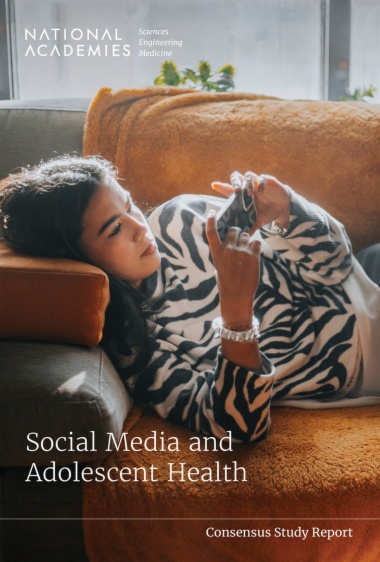

Social media has been fully integrated into the lives of most adolescents in the U.S., raising concerns among parents, physicians, public health officials, and others about its effect on mental and physical health. Over the past year, an ad hoc committee of the National Academies of Sciences, Engineering, and Medicine examined the research and produced this detailed report exploring that effect and laying out recommendations for policymakers, regulators, industry, and others in an effort to maximize the good and minimize the bad. Focus areas include platform design, transparency and accountability, digital media literacy among young people and adults, online harassment, and supporting researchers.